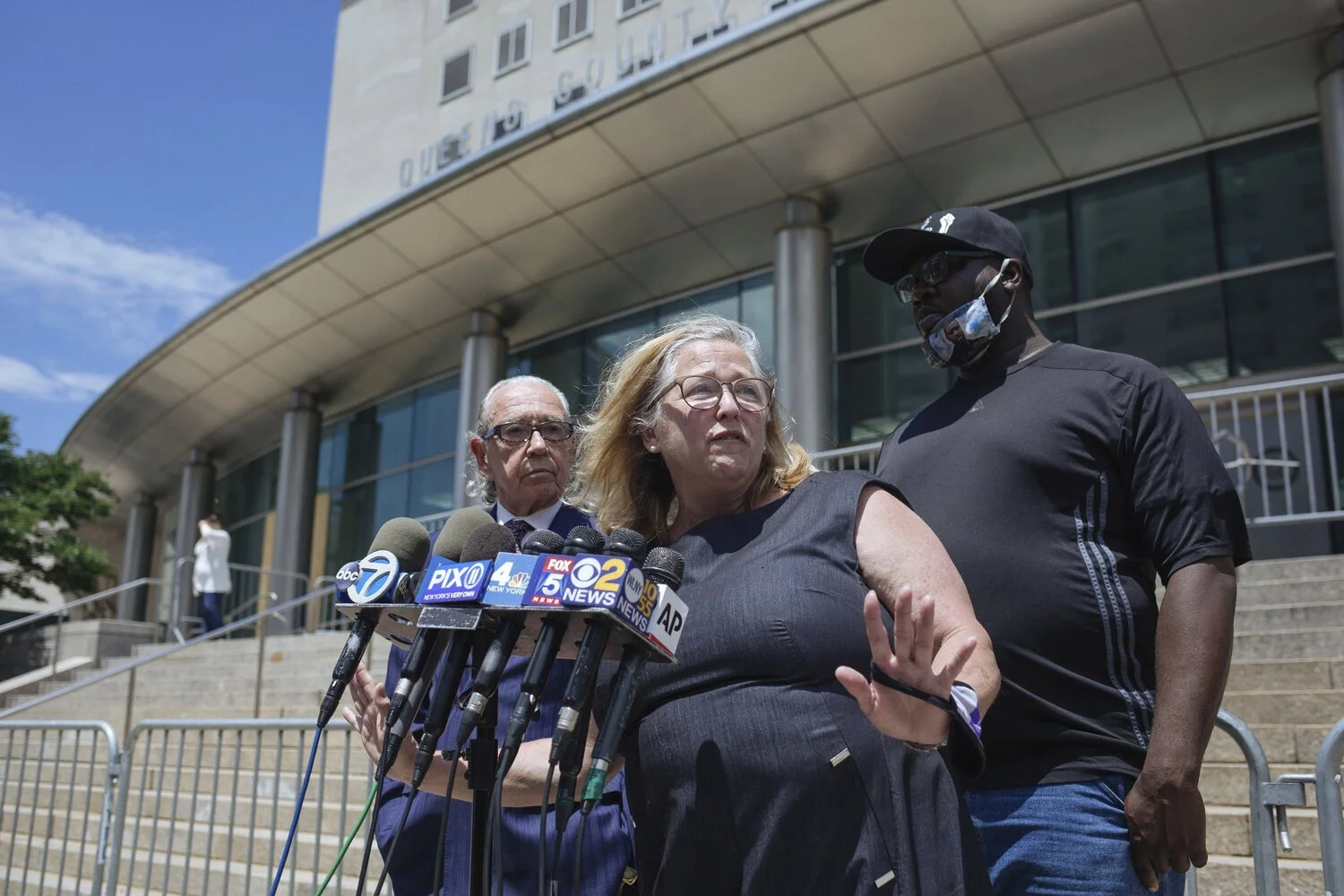By Noah Powelson
The controversial former head of Queens Defenders was let off with a warning by a judge on Monday after prosecutors alleged that she had continued to attempt to steal funds from her former nonprofit as she awaits trial.
Lori Zeno, who faces federal charges for allegedly defrauding the Queens nonprofit she helped create in the 1990s, will not have to wear an ankle monitor or be subjected to online monitoring as trial preparations continue. Federal prosecutors requested Zeno be required to wear an ankle monitor after accusing the Queens Defenders founder of attempting to return items she allegedly illegally bought with a company credit card and pocket the cash herself.
U.S District Judge Rachel Kovner made the decision in the U.S. District Court for the Eastern District of New York, stating she was hesitant to enforce such stipulations until absolutely necessary and didn’t see how an ankle monitor would guarantee Zeno stay out of trouble until trial.
Zeno is currently out on a $500,000 bond. Part of her bail stipulation forbids her from contacting any current or former employees of Queens Defenders, other than her two children, who are former QD employees.
Following the new accusations, Kovner modified Zeno’s bail conditions to forbid her from speaking to vendors under the company’s name. While the judge did not grant prosecutors’ request for an ankle monitor, Kovner said she would potentially revoke bail status if Zeno violated the conditions again.
“The conduct is a concern,” Kovner said. “We should all be very clear this was a one-time thing.”
Assistant United States Attorney Sean Sherman did not object to Kovner’s ruling, but said he was hoping for further assurance of the defendant’s behavior during her release. While he said he did not want Zeno’s bail status revoked, Sherman also said they more or less stumbled upon the most recent violation and was concerned about efficiently monitoring the defendant in the months leading up to trial.
“Without conditions that can assist…it makes it very difficult to monitor for further violations,” Sherman said.
Ultimately, Sherman said he wouldn’t push the issue further and would be regularly investigating for further violations.
Zeno and her husband, Rashad Ruhani, were charged in June for defrauding Queens Defenders and allegedly stealing at least $300,000 from the nonprofit by using a company credit card to make personal purchases over the course of a year.
Ruhani, who was also present at the court hearing on Monday, remains in custody due to what federal prosecutors described as a “significant history of serious violent crime.” Ruhani was already on lifetime parole prior to the fraud case against him and Zeno.
The couple allegedly spent $10,000 of the nonprofit’s funds on a vacation to Bali, a teeth-whitening procedure, an evening at a high-end steakhouse and other personal purchases. Zeno and Ruhani also allegedly used the organization to pay for their $6,000-a-month penthouse apartment in Astoria.
Additionally, Ruhani’s legal wife, Ureka Washington, was allegedly given a no-show job with a $60,000 salary at Queens Defenders by Zeno and Ruhani. Zeno and Ruhani were wed in a religious ceremony and not legally married.
The alleged fraud caused a major disruption to the organization, which offers criminal and civil defense to low-income New Yorkers.
A $32 million criminal defense contract once held by Queens Defenders was transferred over to Brooklyn Defender Services by the city in March, two months after Zeno and Ruhani had been kicked out of Queens Defenders by the organization’s board and three months before the reasons behind their ouster would be made public.
City officials said they had lost confidence in Queens Defenders’ ability to meet the contract demands and how much influence the nonprofit founder had in shaping the company’s board and leaders.
In September, Sherman and other federal prosecutors accused Zeno of attempting to return thousands of dollars’ worth of packing supplies that she allegedly bought again with a Queens Defenders credit card.
Prosecutors said that in November and December of 2024, Washington had put a variety of packing supplies in a virtual shopping cart in two separate purchases and sent them to Ruhani. Ruhani then allegedly sent the cart to Zeno, who then allegedly had the packing items shipped to a warehouse operated by Queens Defenders in Manhattan.
About six weeks after she had been indicted, Zeno allegedly called the vendor and asked to return some of the items, telling the company that the “[j]ob fell through and [the] items [were] no longer needed,” according to prosecutors.
Throughout August, prosecutors said Zeno made several calls to the vendor attempting to get the refund check made out to her.
When the vendor offered to refund the items to a credit card that had since been cancelled, Zeno claimed that she first told the vendor to make the check out to her and that she would bring it to the nonprofit. When the vendor said they’d send the check directly to the organization, Zeno said that would be alright, according to the filing.
After attempting to divert the stolen funds, Zeno allegedly lied to her assigned pretrial services officer about the ordeal.
The former executive director reportedly told the officer that after being contacted by someone at Queens Defenders about clearing out a storage unit where Zeno claimed the items were being held – they were allegedly actually being held in a shed at her house – she called the vendor to set up the return.
The feds said they weren’t sure why Zeno bought the packing supplies, which included large plastic bins, industrial package scales, a vacuum sealer, industrial packing tables, industrial steel shelving and a dozen knives.
In all, Zeno spent over $14,500 of Queens Defenders’ money on the orders, according to court filings.
A tentative trial date for Zeno and Ruhani was scheduled on Monday for June 1, 2026. Prosecutors said they estimated they would take two weeks to lay out their case, if they go to trial.

